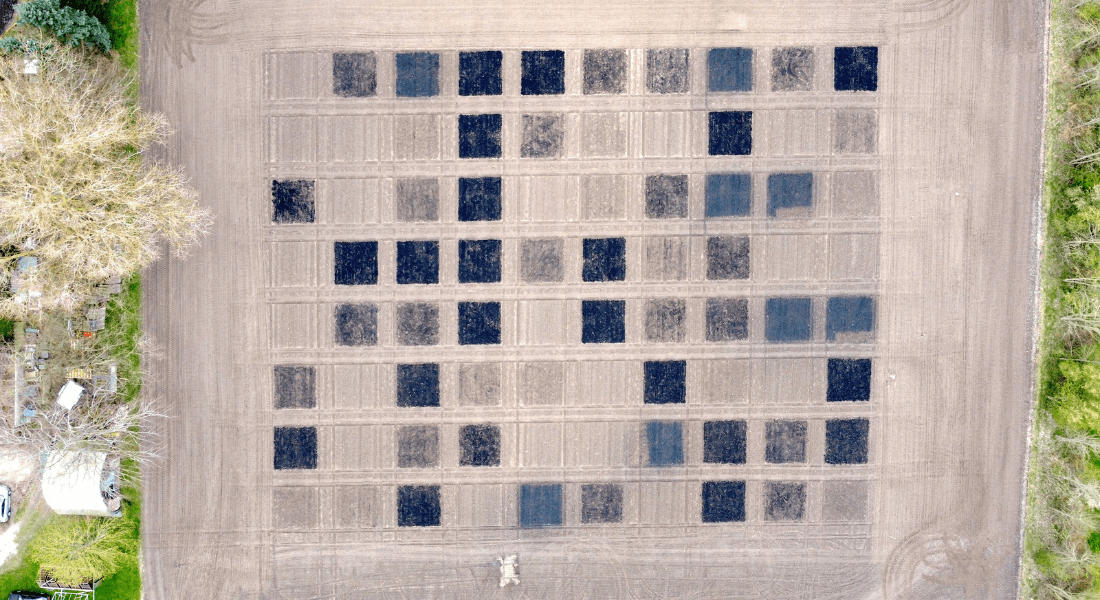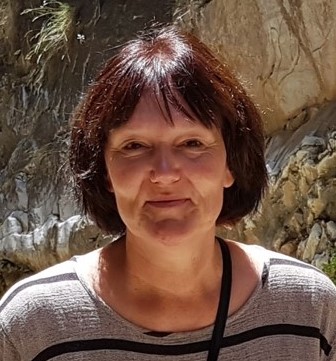Soil Fertility and Nutrient Recycling

Agricultural soils should be managed in a way that maximizes crop nutrient use efficiency and soil organic carbon content, with the overall aim to ensure efficient nutrient recycling and high soil fertility. Soils also play an essential role in processing and absorbing some of the unwanted substances that are inevitably contained in organic waste streams used in a circular economy after their application to land.
The Soil Fertility and Nutrient Recycling group investigates numerous management strategies, including the application of synthetic, mineral, as well as bio-based fertilizers made from waste streams of rural, urban, and industrial origin, and their targeted timing and placement, and the integration of cover crops, green manures, and other soil amendments into cropping systems.
The overall visions of the Nutrient Recycling and Soil Fertility groups are:
- Maximizing nutrient use efficiency in both conventional and low-input organic farming systems through improving nutrient availability from different synthetic and bio-based fertilizers and synchronizing nutrient supply with crop demand.
- Evaluating and exploiting the potential of different management strategies to build a stable soil carbon pool as a key determinant of soil chemical, physical and biological fertility.
- Evaluating and assessing the long-term resilience of the soil ecosystem with respect to its ability to protect the food, atmosphere, and water systems, by processing, absorbing, and immobilizing unwanted substances, i.e. heavy metals, pharmaceutical residues, xenobiotics, microplastics, pathogens etc.
- Understanding interactions between soil chemical and physical properties and soil microbial functions, with the vision of promoting crop productivity through the use of appropriate management strategies.
The impact of different strategies on soil fertility, crop productivity and soil ecosystem resilience are assessed using a range of methods from short-term laboratory, climate chamber and glass house experiments to long-term field trials, including isotopic techniques to trace nutrient turnover and measurements of nutrient availability and of soil microbial parameters.
2024-2029: BiokuLTE: langvarige forsøg med biokul på dansk landbrugsjord (Agricultural Agency, Budget 62 MDKK,13.9 MDKK to PLEN, group co-applicant)
2024-2027: KlimaGødFød - Nye Gødninger fra klima-effektiv recirkulering af fosfor og kvælstof til grønne fødevarer (GUDP, Budget 7.5 MDKK, 2.9 MDKK to PLEN, group co-applicant)
2024-2027: SuperKul: Enhancing phosphorus recycling efficiency and carbon Sequestration through treatments for UPcyclEd biochars use in Regenerative agriculture (Novo Nordisk Foundation, Postdoctoral Fellowship Pietro Sica, Budget 2.5 MDKK)
2023-2028: Phosphorus availability in sludge and sludge biochar (Svensk Vatten and other Swedish water companies, budget 2.5 MDKK, 2.2 MDKK to PLEN, group co-applicant)
2023-2027: DeliSoil: Delivering Soil improvers through improved recycling and processing solutions for food industry. (EU Horizon Europe, Budget 49.2 MDKK, 5.2 MDKK to PLEN, group co-applicant)
2023-2026: Klimon: Klimaeffekter og nitratudvaskning ved forskellige typer af jordbearbejdning og plantedække (Agricultural Agency, Budget 15 MDKK, 3.9 MDKK to PLEN, group co-applicant)
2022-2026 GRF2 - Centre for Geo-enhancing Biological Productivity with Glacial Rock Flour’ (Novo Nordic Foundation, budget 39.9 MDKK, 3.6 MDKK to PLEN, group co-applicant).
2022-2026: BioStore - High dose application of Danish biochar – carbon storage, soil fertility enhancement, environmental and climate impacts (Innovation Fund Denmark, Budget 6.6 MDKK, 2.4 MDKK to PLEN, group main applicant)
2022-2025: Skyclean (Pyrolysepuljen 2022, Budget 124 MDKK, 4.1 MDKK to PLEN, group co-applicant)
2022-2025: Climate Friendly Plant Biologicals - Climate and Environmentally Friendly Plant Biologicals – Development of novel methods for assessing the impact of plant biologicals on crop productivity, climate, environment, and biodiversity (Innovation Foundation Denmark, Budget 4.8 MDKK. 1.9 MDKK to PLEN, group co-applicant)
2021-2025 Processor - Phosphorus Recycling from Complex scarcely Soluble Societal resources – letting the soil do the work (DFF, Budget DKK 6.1 MDKK, 5.8 MDKK to PLEN, group main applicant)
2021-2025: ReCap - Capture, recycling and societal management of phosphorus in the environment (EU H2020 Marie S. Curie European Training Network program, budget 32 MDKK, 2 MDKK to PLEN, group co-applicant)
2021-2024: Carbon Farm II: (GUDP, DKK 10.2 MDKK, 1.9 MDKK to PLEN, group co-applicant)
2021-2024: Rootmix - Mixed cultivar systems to mitigate drought effects in Nordic crop production (Novo Nordisk Foundation, Budget 4 MDKK, 0.2 MDKK to PLEN, group co-applicant)
2021-2024 Fertihood - Nutrient recycling for soil fertility and improved organic livelihood (GUDP, budget 9.4 MDKK, 2.9 MDKK to PLEN, group co-applicant).
2020-2024 – Reconcile - REcycling, CONsumer CredibILity and Ecosystem integrity (GUDP, budget 5.4 MDKK, 2.5 MDKK to PLEN, group main applicant)
2019-2025: INTERACT – Decoding the Rhizobiota Interactome for Improved Crop Resilience, funded by NNF, project participant, Total budget 60 MDKK 3 MDKK for group, group co-applicant.
2002-present: CRUCIAL: Closing the Rural-Urban Nutrient Cycle - Investigations through Agronomic Long-term experiments
1965-present: LTNDT: The Long-term Nutrient Depletion Trial (Udpiningsmarken)
Researchers
| Name | Title | Phone | |
|---|---|---|---|
| Aimée Danielle Schryer | Postdoc | +4535328464 | |
| Dorette Sophie Müller-Stöver | Associate Professor | +4535331236 | |
| Esben Wilson Bruun | Academic Research Staff | +4535335732 | |
| Eva Faurholdt Vistisen | PhD Fellow | +4535328376 | |
| Jakob Magid | Associate Professor | +4535333491 | |
| Klara Gunnarsen | Postdoc | ||
| Tine Engedal | Postdoc | +4542592702 | |
| Veronika Hansen | Assistant Professor - Tenure Track | +4535331397 |
 Research group leader
Research group leader
Dorette Sophie Müller-Stöver
Lektor
dsst@plen.ku.dk
+45 35 33 12 36
